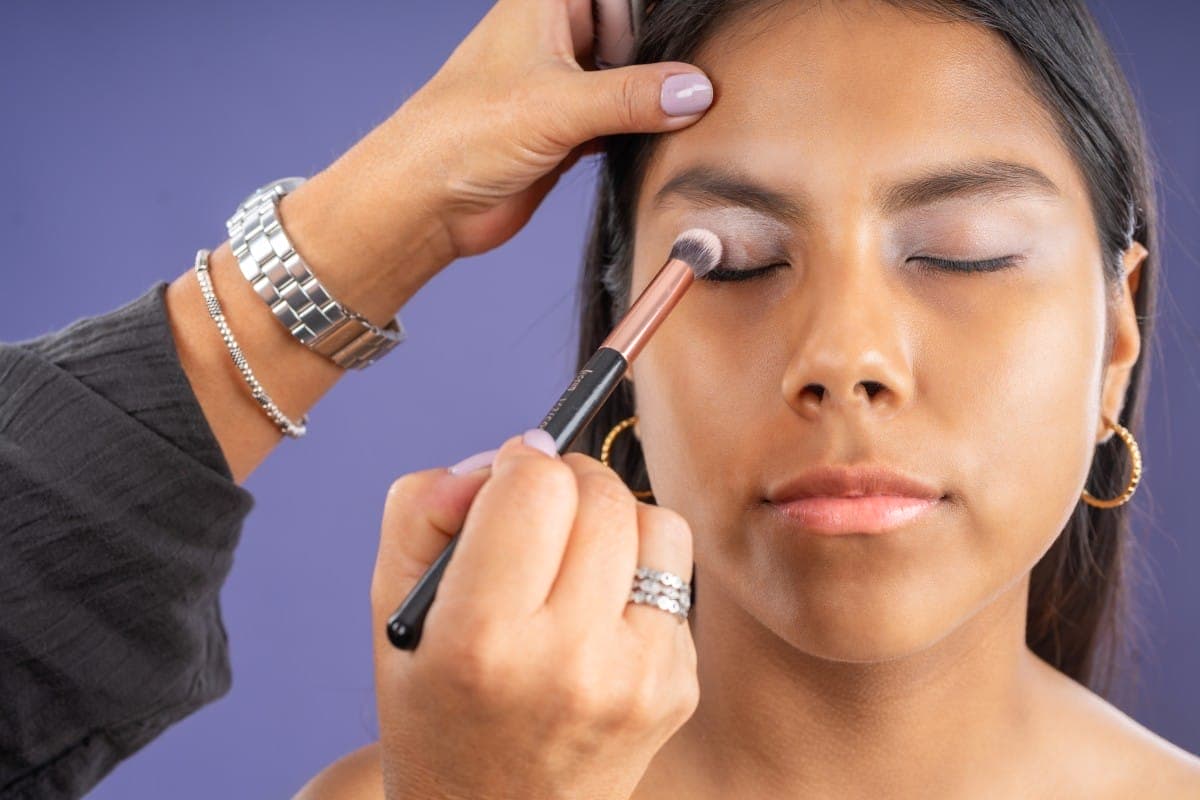If you click on links we provide, we may receive compensation.
Eye makeup is a beloved part of many beauty routines, adding a touch of glamour and enhancing natural features. However, ensuring its safe use is essential to prevent irritation, infections, or more serious eye conditions. This guide will help you use eye makeup safely, offering practical tips and highlighting important considerations.
Choosing Safe Products
The first step in eye makeup safety is selecting the right products. Not all cosmetics are created equal, and some may contain ingredients that could irritate your eyes. It’s crucial to read labels and be aware of any substances that might cause allergic reactions. Look for hypoallergenic products, especially if you have sensitive skin or eyes.
When purchasing eye makeup, always check the expiration date. Using expired makeup can lead to infections, as bacteria can grow in old products. Mascara, in particular, should be replaced every three months to minimize the risk of eye infections. Liquid and cream products are more prone to bacterial contamination than powder-based ones.
Proper Application Techniques
How you apply your eye makeup can also impact eye health. Always start with clean hands to avoid transferring bacteria to your eyes. Use clean brushes and applicators, and never share your makeup with others. Sharing can spread bacteria and viruses, increasing the risk of eye infections.
When applying eyeliner, be careful not to apply it too close to the waterline, as this can block the oil glands and cause dry eyes or infections. Opt for an eyeliner that glides on smoothly to minimize the risk of scratching the delicate skin around your eyes. For mascara, avoid pumping the wand in and out of the tube, as this can introduce air and bacteria. Instead, twist the wand to load it with product.
Removing Eye Makeup Safely
Removing your eye makeup at the end of the day is as crucial as applying it. Leaving makeup on overnight can clog pores, lead to infections, and irritate your eyes. Use a gentle eye makeup remover to thoroughly cleanse your eyelids and lashes. Opt for products that are specifically formulated for the sensitive eye area.
Avoid using harsh soaps or regular face cleansers around your eyes, as these can be too drying and irritating. Instead, choose a remover that suits your skin type and preferences—whether it’s an oil-based cleanser, micellar water, or makeup-removing wipes. Be gentle during removal to avoid pulling or tugging at your skin.

The Importance of Hygiene
Maintaining good hygiene is essential to prevent eye infections. Wash your hands before touching your face or eye makeup. Regularly clean your makeup brushes and applicators with mild soap and water, and let them dry completely before use. Clean tools mean fewer bacteria and a lower risk of infections.
Never share your eye makeup, even with close friends or family. Sharing products can spread bacteria and viruses, increasing the likelihood of eye infections. If you ever experience eye irritation, redness, or swelling, stop using your eye makeup immediately and consult an eye care professional.
Be Aware of Allergies and Sensitivities
Many people have allergies or sensitivities to certain makeup ingredients. Common culprits include preservatives, fragrances, and dyes. If you have a history of allergies, choose products labeled hypoallergenic or specifically designed for sensitive eyes. Conduct a patch test by applying a small amount of the product to your wrist or behind your ear and wait 24 hours to see if a reaction occurs.
If you experience any itching, redness, or swelling, discontinue use immediately. Allergic reactions can range from mild irritation to severe swelling and discomfort. Knowing your sensitivities and avoiding triggers can help maintain your eye health.
The Role of Contact Lenses
If you wear contact lenses, you need to be extra cautious with eye makeup. Apply makeup after inserting your lenses to avoid contaminating them with makeup particles. Opt for oil-free and water-based products, as oil-based makeup can interfere with the lenses. Additionally, avoid glittery or shimmery eye makeup, as these particles can get trapped under your lenses and cause irritation.
Removing contact lenses before taking off your makeup is also crucial. This prevents makeup from transferring onto your lenses and reduces the risk of eye infections. Always follow your eye care professional’s advice regarding lens care and replacement schedules.
Staying Updated with Recalls and Safety Warnings
Stay informed about product recalls and safety warnings. Occasionally, cosmetics may be recalled due to contamination or the discovery of harmful ingredients. Keeping up-to-date with this information can help you avoid using unsafe products. The U.S. Food and Drug Administration (FDA) is a reliable source for such updates.
Eye Makeup and Eye Health Statistics
A survey conducted by the American Academy of Ophthalmology found that nearly 30% of women have experienced eye infections or irritation related to eye makeup use. This statistic underscores the importance of practicing good eye makeup hygiene and being vigilant about product safety.
The Importance of Regular Eye Exams
Regular eye exams are vital for maintaining overall eye health. These exams can detect potential issues early and provide you with professional advice tailored to your needs. If you frequently use eye makeup, inform your eye doctor so they can check for any signs of irritation or infection.
Conclusion
Eye makeup can enhance your beauty routine, but it’s essential to use it safely to protect your eyes. By choosing the right products, applying them correctly, and maintaining good hygiene, you can enjoy your eye makeup without compromising your eye health. Stay informed about recalls and safety warnings, be aware of your allergies, and prioritize regular eye exams to keep your eyes healthy and beautiful.




